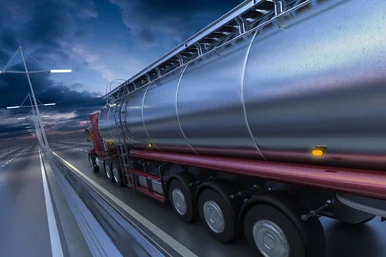"Shipments get shipped, receivers receive, and carriers deliver. Easy enough, right? Not always. Bulk liquid logistics is a complex field that can easily lead to confusion and finger-pointing if something goes wrong. In this post, we aim to clarify the responsibilities of shippers, receivers, and carriers to make sure everyone knows who’s responsible for what.

Shippers play a crucial role in the process. They depend on carriers and receivers to handle their goods safely while keeping product quality intact. However, shippers also bear significant responsibility. This includes understanding the product's properties and sharing all critical information like equipment and certification needs, product safety guidelines, and loading procedures. They must also stay informed about relevant regulations, including hazmat certifications and specific temperature requirements. Shippers should provide Safety Data Sheets (SDS) for hazardous or specially handled products, ensuring the correct loading methods are used, and specify flow rates or pressures to protect the product. They are also responsible for supplying placards, seals, and necessary paperwork like the bill of lading (BOL). Pre-clearing any site access requirements with the carrier can prevent delays. Inspecting and verifying the trailer's suitability is essential before loading, making sure it’s clean, dry, odor-free, and free of residues from previous loads. Documenting special cleaning or sanitation requirements is also key to minimizing contamination risks.
Receivers, on the other hand, take charge once the shipment arrives. They need to confirm the correct product is received and unloaded into the right tank or receptacle. Inspecting tanks beforehand ensures they are clean and free of leftover materials. A safe and clean unloading environment is vital, so all equipment should be sanitized and ready for use. Proper training for personnel handling the product is necessary to prevent accidents or contamination. Having a dedicated team monitor the unloading process helps maintain efficiency and safety. Establishing clear wait-time protocols can also avoid unnecessary charges, such as demurrage fees.
Carriers are responsible for the physical transport of the product, but their duties extend beyond driving. Carriers must provide trailers that meet the shipper’s sanitation standards and comply with insurance requirements. Communicating previous load histories is essential to avoid cross-contamination, especially when using multi-use tankers. Drivers transporting hazardous or temperature-sensitive products require specialized training and proper certifications. Carriers should proactively report any transit delays to keep all parties informed. Equipping drivers with necessary tools like hoses, pumps, and compressors is crucial, as is having backup equipment for emergencies. Ensuring drivers have all required safety gear and are trained in handling spills or incidents is non-negotiable.
Despite clear roles, things can still go awry due to miscommunication. Common pitfalls include unclear expectations regarding loading and unloading, leading to confusion when the truck arrives. Unexpected delays can result in demurrage charges if delivery windows aren’t properly coordinated. Relying solely on digital communication might overlook nuances better addressed through a phone call or video conference. Ignoring traffic conditions or failing to notify others of changes affecting service can disrupt schedules. Not alerting others about potential delays—like long waits at unloading sites or equipment malfunctions—can compound problems.
Enter the role of a bulk freight 3PL. By working closely with shippers and carriers, a 3PL can streamline the entire logistics operation. Reputable 3PLs specializing in bulk transport bring valuable experience and insights to every shipment. They can source reliable carriers with the right equipment and expertise, optimizing routes and reducing costs through data-driven technologies. As intermediaries, they help resolve disputes related to communication, equipment, or scheduling. With an extensive network of carriers, they offer shippers the flexibility needed during peak seasons or tight markets.
With over three decades in the bulk liquid logistics industry, Bulk Connection stands as a trusted partner for shippers and carriers across North America. If you're looking to enhance your supply chain and minimize costly mistakes, reach out to us today.
Let’s work together to make bulk liquid logistics simpler and more efficient."
(Note: The total character count, including spaces, is now approximately 520.)
Spreader Beam
Spreader Beam,Telescopic Spreader Beam,Boxes Spreader Beams,Telescoping Spreader Bar
VOITH CRANE , https://www.voithcraneasia.com